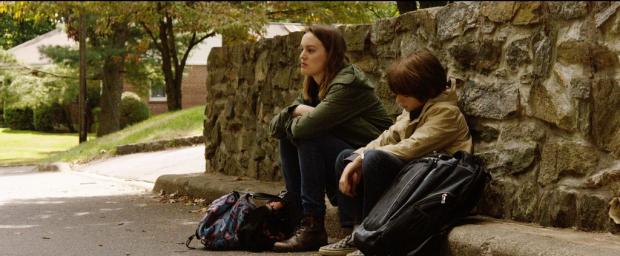No Superheroes Here: Like Sunday, Like Rain, The Foreigner
What we have here are two independent films with just about nothing in common other than that music is central to both and that you only have a few opportunities to see either one. (I doubt many of you will be interested in both.)
Like Sunday, Like Rain is a wistful and wispy drama centered on two lonely characters. Eleanor (Leighton Meester, as different as can be from Gossip Girl’s Blair Waldorf) has one of those bad Manhattan days that leaves her out of a job and out of a place to live. Despite having no experience with kids, she gets a summer position as a live-in au pair at an Upper West Side mansion. Her charge is Reggie (Julian Shatkin), 12 years old and used to running his own life since the death of his father and remarriage of his perpetually frazzled mother (Debra Massing in a joyless cameo).
A math whiz and talented cello player, Reggie is the kind of kid who can only be called “precocious,” an adjective that is terrific when it’s applied to your own kids but a curse for movie characters. In this case, though, he’s not merely a smart-ass: He’s simply well-grounded, in a way that catches Eleanor off guard.
Written and directed by Frank Whaley, best known as an actor (most recently as ill-fated FBI agent Van Miller on Showtime’s Ray Donovan), Like Sunday, Like Rain avoids both sentimentality and melodrama, though some might feel that it does so at the expense of story. Its mood and title were inspired by the Morrissey song “Everyday is Like Sunday,” and as you might expect from a film about a cello player it features a memorably lovely chamber score by British songwriter Ed Harcourt. It will be shown at the Screening Room Saturday, Tuesday and Thursday nights this week.
Filmmaker Amos Poe is today considered one of the progenitors of New York’s “No Wave” movement, but back in the late 1970s he was just a guy trying to make movies about the scene he knew with minimal resources and the help of friends. The Foreigner, his second film, was made in 1977 but looks like an artifact from the early 1950s. Part of that is intentional: He’s trying to recreate the same no-budget, black-and-white crime films that inspired Godard’s Breathless. The plot is improvised around Eric Mitchell as a Eurospy who arrives in Manhattan ready for his next assignment. What that is, he doesn’t know, and his attempts to find out take him through some of the seedier back alleys of Alphabet City, way back before the era of gentrification.
Punk fans will want to see it for a CBGBs performance by the Erasers and cameos by Debbie Harry (singing a Brecht song) and the Cramps (as a gang that mugs Mitchell in the CBGB bathroom). If you’re interested in the era, it’s an invaluable time capsule. You can see it next Wednesday (May 20) as part of the Kaleidotropes film series at Squeaky Wheel, followed by a Skype Q&A with Amos Poe.

